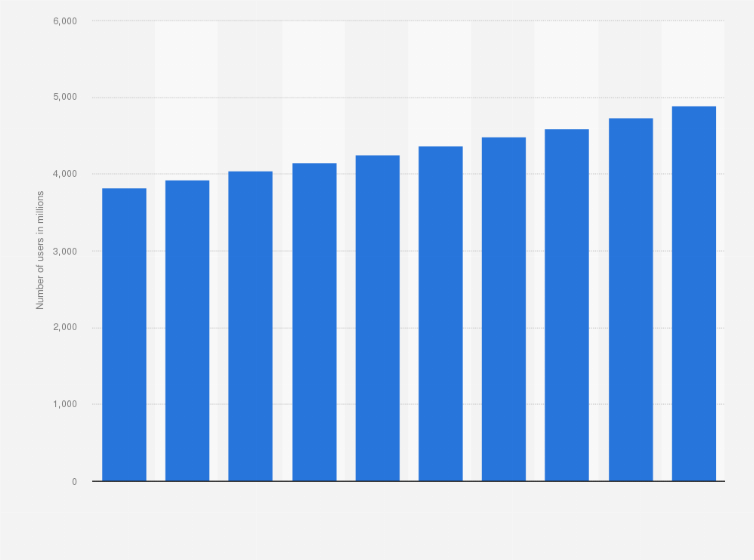The modern working person opens their digital email more often than their physical one. As the number of email users continues to grow each year, it has become an essential digital marketing approach for businesses around the world.

Even though technologies have changed how marketers connect with customers, email marketing is still a powerful tool. Also, customers prefer to email when they want to connect to a brand. With the assistance of AI, email marketing can reach new levels of effectiveness.
AI is helping people in many ways, but still, it’s early stage. There are many questions that marketers need to answer before they use AI email marketing. Why Ai email marketing important? What benefits of AI marketing? Top AI tools for email marketing, and more.
This article guide will help you find out how AI can help your email marketing and how brands connect with their audiences.
What is AI in Email Marketing?
AI in email marketing refers to the use of machine learning algorithms for analyzing data, personalizing content, and optimizing send times. It utilizes an integrated approach of machine learning, natural language processing, and data analytics to analyze user interactions and behavioral data, enabling it to:
- Predict future behaviors
- Personalize messages
- Segment users
- Send timely emails
- Execute campaigns at scale
AI in marketing helps marketers automate tasks, enhance personalization, and analyze performance metrics, ultimately leading to more effective communication strategies.
Importance of AI in Modern Marketing
During a 2023 survey carried out among email marketers from the United States and other European countries, it was found that approximately 51% believed that AI-supported email marketing was more effective than traditional email marketing approaches.
Unlike segmentation which requires manual setup and adjustment, AI-driven email marketing adjusts these elements in real time. As new data from user actions comes in, the system analyzes it and refines and targets communications accordingly.
With artificial intelligence, one can forecast future customer behavior based on current trends, predict the best time to send emails to each recipient and suggest and optimize content based on what has previously worked. By adapting to customer behavior, email marketing campaigns become more engaging and responsive.
Read: Email Marketing Automation: The Complete Guide
Benefits of Using AI in Email Marketing
AI in email marketing doesn’t replace marketers, it just helps them to do more with less effort. With AI-driven, marketers can optimize send time, responsive content at scale, and enhance segment strategies.
Here is a list of the benefits that AI tools bring to email marketing:
Personalization at Scale
AI enables marketers to create personalized experiences for their audiences. By analyzing user preferences, AI can tailor content, recommendations, and product suggestions, significantly improving open rates and engagement.
Optimization of Send Times
In order to increase the likelihood of an email being opened and read, AI utilizes predictive analytics to determine the most effective times to send emails to individual recipients.
Enhanced Segmentation Strategies
With AI, marketers can divide their email lists more effectively. AI can target specific audiences by analyzing demographics, behaviors, and engagement data, resulting in more effective campaigns.
Key AI Tools for Email Marketing
Overview of Popular AI Tools
A number of AI tools are available to enhance email marketing efforts, including:
Sailthru
Sailthru is a leading AI-powered marketing automation platform designed specifically for email marketing and customer retention. The technology allows brands to deliver personalized experiences across multiple channels by leveraging data-driven insights.
SendinBlue (Brevo)
The Brevo email marketing automation platform integrates with SMS, WhatsApp messaging, and live chat, making it the best software for email marketing automation. If you’re looking for a comprehensive digital marketing solution for a small or medium business, this is the perfect solution.
Phrasee
Phrasee is a content marketing software that uses artificial and generative artificial intelligence to provide suggestions based on performance projections. It’s ideal for businesses that want to create content quickly using data.
Bulk Email Verification Tool
Bulk Email Verification Tool helps marketers maintain a clean email list, reducing bounce rates and improving overall campaign effectiveness. By verifying emails before campaigns, you can ensure higher deliverability and engagement. This tool offers accuracy above 99%, risk scoring to identify fake emails and real-time API for single or bulk email verification.
How to Choose the Right Tool for Your Needs
Choosing the right AI tool for email marketing is essential for optimizing campaigns. Start by defining clear goals—whether it’s increasing open rates, boosting conversions, or enhancing engagement. Also, know about your budget to find a tool that offers the right features at a price you can afford.
Integration with existing systems is crucial for seamless data flow, so check compatibility with your CRM and other tools. You can find tools by taking advantage of free trials to test functionality, and research user reviews to gauge satisfaction among current users.
When you consider these factors carefully, you can choose an AI solution that enhances your email marketing strategy and drives impactful results.
Implementing AI in Your Email Marketing Strategy
An effective AI implementation requires a well-structured approach aligned with your marketing objectives. Here’s how to get started:
Steps to Integrate AI into Your Campaigns
Setting Clear Objectives
Make sure your email marketing campaigns have clear, measurable goals. Decide what you want to achieve, such as increasing open rates, increasing website traffic, or boosting sales. By setting specific objectives, you are able to guide your AI strategies and ensure you stay focused on the desired outcomes.
Define Metrics: Establish key performance indicators (KPIs) aligned with your goals, such as open rates, click-through rates, and conversion rates.
Align with Business Goals: Ensure your email marketing objectives support your business strategy, such as improving customer relationships or expanding market reach.
Data Collection and Management
Data is the backbone of any AI initiative. Collecting and managing high-quality data is essential for effective AI in email marketing.
Gather Data: Use multiple sources to collect data, including website analytics, social media interactions, and customer feedback.
Ensure Data Quality: Regularly clean and validate your data to ensure accuracy and relevance. Use the Bulk Email Verification Tool to maintain a clean email list.
Utilizing the Bulk Email Verification Tool
Before launching campaigns, use the Bulk Email Verification Tool to clean your email lists. Verifying email addresses helps enhance deliverability and engagement, ensuring your messages reach the intended audience.
Verification Process: Upload your email list to the verification tool, which checks for invalid and inactive addresses.
Review Results: Analyze the verification results to identify and remove invalid email addresses.
Regular Maintenance: Make email verification a regular part of your list management strategy to continually improve your campaign performance.
Read: The Ultimate Guide to Bulk Email Verification: Best Practices, Tools, and Techniques
Crafting Effective Email Content with AI
AI can significantly enhance the quality of your email content, making it more engaging and relevant to your audience.
Writing Compelling Subject Lines
The subject line is often the first impression when sending an email. AI can analyze previous campaign data to generate subject lines that drive higher open rates.
Use A/B Testing: Implement AI-driven A/B testing to compare different subject lines and determine which is best for your audience.
Leverage Personalization: Combine recipient names or relevant topics into subject lines to increase personalization and engagement.
Optimizing Call-to-Actions (CTAs)
CTAs are crucial for driving conversions. AI tools can help optimize CTAs based on customer’s preferences.
Placement and Design: Use AI insights to determine the best placement, color, and wording for CTAs in your emails.
Test Variations: Experiment with different CTAs using A/B testing to identify what works best for your audience.
Challenges and Considerations
Common Pitfalls in AI Email Marketing
While AI offers numerous benefits, there are common pitfalls to be aware of:
Over-Automation: Relying too heavily on automation can lead to generic, impersonal emails that fail to resonate with recipients.
Data Privacy Concerns: Keeping with data protection regulations is essential. The collection and use of customer data must always be transparent and protect the privacy of the customers.
Balancing Automation with Human Touch
While AI can automate many tasks, it’s essential to retain a human element in communications. Your audience will become loyal and trusting as a result of your interactions with them.
Human Oversight: Ensure that there is human oversight in your campaigns, especially when it comes to content and customer interactions.
Customer Engagement: Encourage direct communication with customers through personalized responses, feedback requests, and interactive content.
Future Trends in AI and Email Marketing
With AI, email marketing can become personalized based on real-time data analysis. As technology advances, we can expect even more sophisticated AI applications in email marketing, including predictive analytics, advanced personalization techniques, and deeper integration with customer relationship management systems.
Conclusion
Integrating AI into email marketing significantly enhances campaign effectiveness by enabling personalized communication, optimizing performance, and automating processes. In an era of increasingly competitive markets, marketers can create more engaging experiences for their audiences through these advanced tools.
Test Your AI-Powered Email List for Accuracy
Ensuring AI-Generated Lists Are Valid
FAQs
Why is email verification important?
Email verification helps to maintain a clean email list, reduces bounce rates using a bounce rate calculator, and improves campaign effectiveness by ensuring messages reach active addresses.
How does AI help to promote email marketing success?
AI help to analyse customer data to deliver personalised content and optimize send times, increasing engagement rates which allows marketers to tailor their strategies for maximum impact.
Why does a business/startup need email marketing campaigns in the first place?
Email has a high return on investment(ROI). They have the best way to reach customers, increase brand outreach, increase subscriptions and engage with customers.
James P. is Digital Marketing Executive at MyEmailVerifier. He is an expert in Content Writing, Inbound marketing, and lead generation. James’s passion for learning about people led her to a career in marketing and social media, with an emphasis on his content creation.
